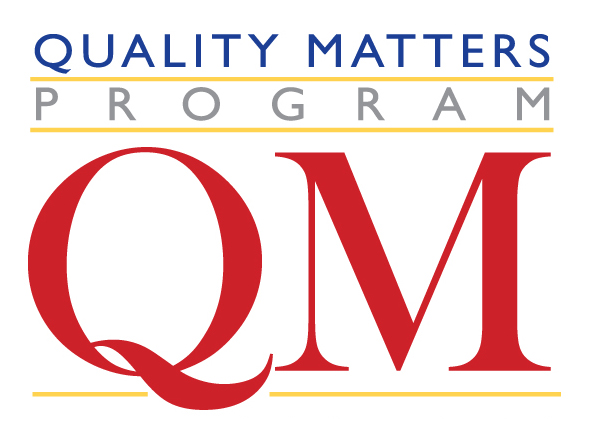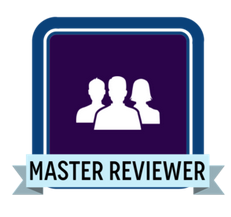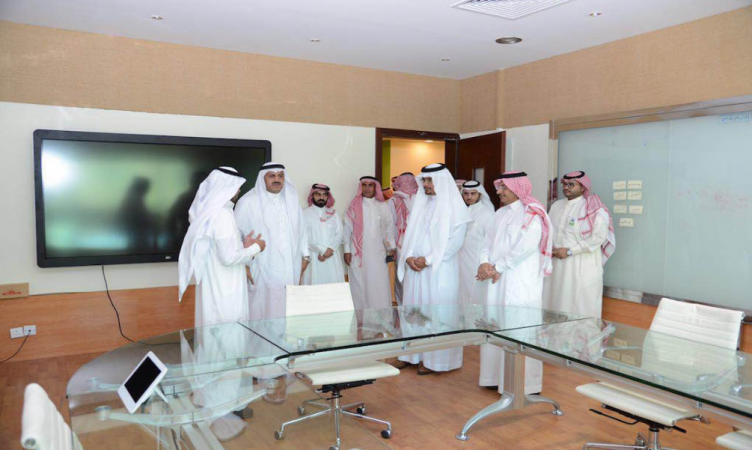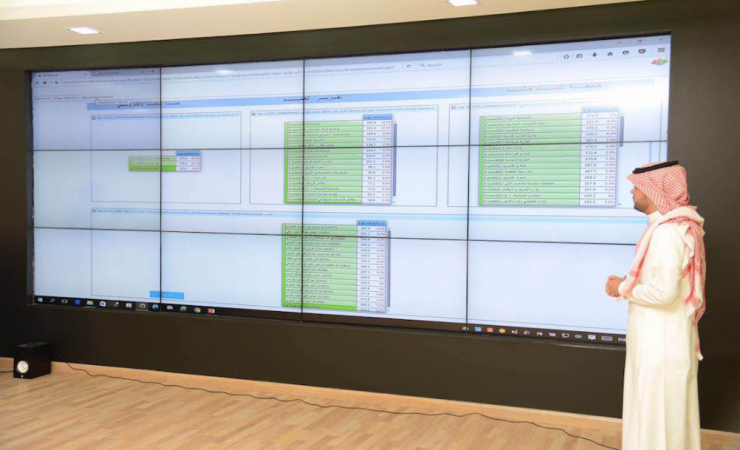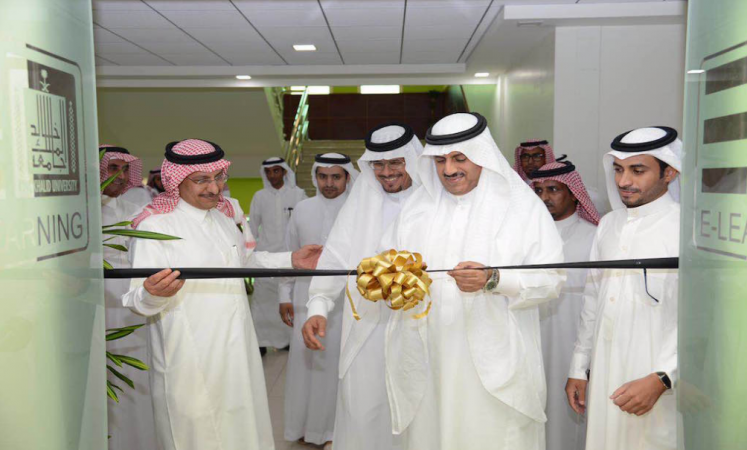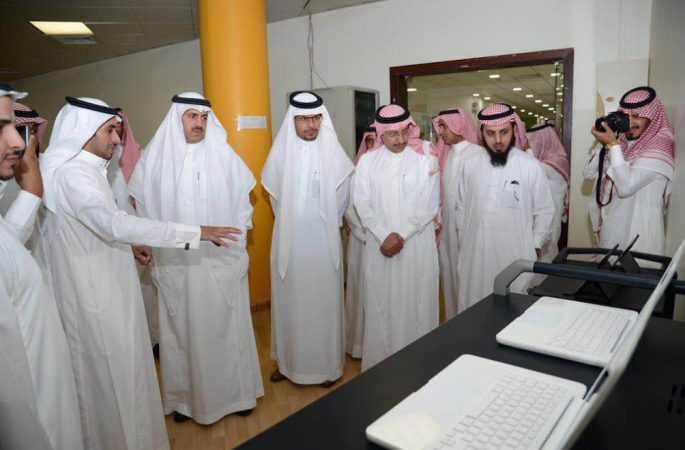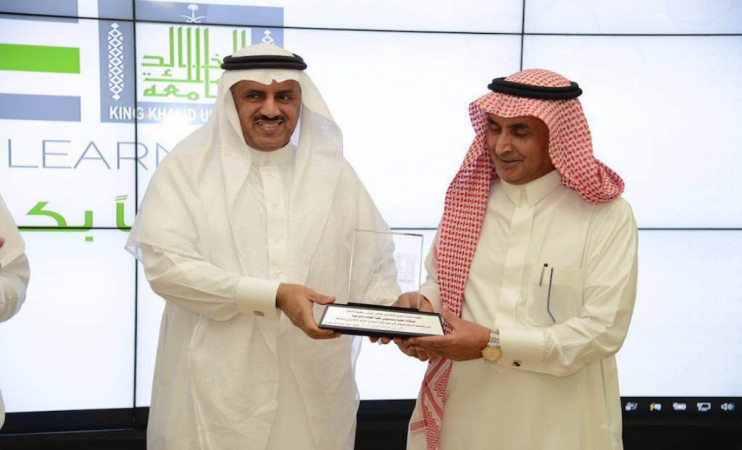Online Course Design: Teacher-Student Interaction is Key
On October 7, 2019, Hassan Costello delivered a workshop titled 'Introduction to Building Quality Online Courses'. The workshop, organized by the E-Learning Unit at Faculty of Languages & Translation in collaboration with the Deanship of E-Learning, was initially tailored toward the English teachers at the Faculty of Languages and Translation (FLT). However, under the supervision of Vice Dean of Academic Development and Quality, Dr. Abdulrahman Almosa, and guidance from E-Learning Unit Supervisor, Mohsin Khan, the FLT decided to open the program to all faculty members in the university system. The college expanded the program university-wide because the material is applicable to online course design across a broad spectrum of professions and disciplines. Members of the FLT and faculty from the College of Medicine attended the workshop.
As the overall quality of online courses is paramount, Mr. Costello framed the workshop in accordance with the eight general standards of Quality Matters (QM). Teaching online requires the skillful interplay of two distinct but closely related activities- course design and student interaction.
Course design requires clarity of purpose. That is, everything in the course must support the desired learning outcomes for the students. Also, online courses must be logically formatted and clearly presented with easy navigation. As students will generally not have unfettered access to the course instructor nor their classmates, the course designer should make individual student autonomy a high priority. Tracking the QM Rubric in the design process helps assure that the ultimate course objectives can be met.
Student/teacher interaction with online courses is very different than traditional classes. Students often work during irregular hours and/or at their own pace. The teacher might not be available to students at mutually convenient times. Also, a teacher may not have the time to respond to every student inquiry in a timely fashion based solely on the number of students enrolled in the class. The limitations on the level of expected student/teacher interaction must be carefully considered in the course design.
In his presentation, Mr. Costello introduced the attendees to each of the QM Rubric standards and provided a summary of 'best practices' for complying with same. The current QM Rubric (6th edition, revised in 2018) has 42 specific standards that are used to evaluate the design of online and blended courses. "Applying the QM Rubric to your course is all about 'alignment'. That is, each lecture, assignment, and activity furthers an objective supporting one or more desired learning outcomes. Aligning tasks and activities with objectives translates into a fully integrated course. The end result is a successful and positive learning experience. Think of the eight general standards of the QM Rubric as a road map that we use to design a course so that both the students and teacher reach the objective in an efficient and pleasant manner," he said.
Mr. Costello provided an introduction to and the best practices of the following general standards:
The Course Overview and Introduction;
Learning Objectives (Competencies);
Assessment and Measurement ;
Instruction Materials;
Course Activities and Learner Interaction;
Course Technology;
Learner Support;
Accessibility and Usability.
Mr. Costello also paid particular attention to the issue of accessibility. Unsurprisingly, accessibility in course design is a top priority for many schools and institutions around the world. In point of fact, accessibility is so important that the QM Rubric includes an 'Accessibility and Usability' component. King Khalid University fully embraces the goal of expanding access to course work. King Khalid University was the first university in the Kingdom to subscribe to the tenets of QM.
Mr. Costello's presentation was chock-full of information. He acknowledged that it was hard to take it all in at once. But he encouraged the attendees in saying, "I want you to think of this workshop as a primer to the 'Applying the Quality Rubric (APPQMR) Workshop'. That workshop is provided free of charge and is sponsored by the Deanship of E-Learning to all interested faculty members. The APPQMR workshop is QM's flagship presentation on the QM rubric. There you will review many of the concepts and requirements we have seen today. Being exposed to the material and having access to the resources will be valuable in the future."
Faculty members in attendance from the College of Medicine showed great interest in applying the strategies Mr. Costello explained in his presentation. The medical college currently has an online course taught by 20 faculty members, and this workshop provided the tools to make substantial improvements to that course.
The FLT hopes to repeat this workshop to benefit more of the faculty in the near future. The Faculty of Languages and Translation is dedicated to providing world-class language education to an ever-expanding segment of the population.
Date: 10/9/2019
Source: Faculty of Languages and Translation

